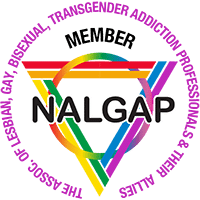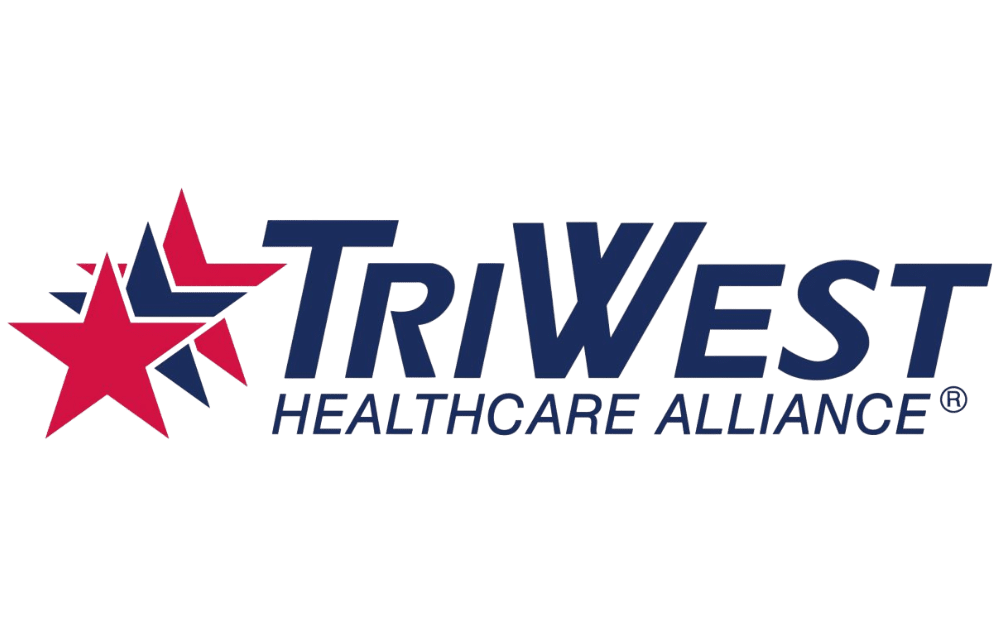Alcohol rehab Colorado
Unique Pathways of Care
The journey to recovery is not one-size-fits-all; it requires an individualized approach that can address the unique needs of each person. In Colorado, alcohol rehab services offer a variety of pathways to help individuals achieve sobriety and maintain their mental health. These pathways include residential treatment, partial hospitalization, and outpatient programs that cater to different levels of addiction severity.
Mile High Recovery Center exemplifies this individualized approach by offering a multi-phase, personalized treatment model. Their integrated housing-to-treatment pipeline allows clients to transition smoothly from one level of care to another. Clients benefit from an array of services ranging from intensive therapy to supportive housing, enhancing their ability to maintain long-term recovery.
Exploring Evidence-Based Approaches
Effective treatment for alcohol addiction often relies on evidence-based clinical therapies. Cognitive Behavioral Therapy (CBT) and Dialectical Behavior Therapy (DBT) are two cornerstone approaches that have proven successful in treating substance use disorders. These therapies help individuals understand the underlying causes of their addiction and develop healthier coping mechanisms.
At Mile High Recovery Center, CBT and DBT are integrated into treatment plans alongside Motivational Enhancement Therapy and psychotherapy. This comprehensive approach ensures that clients receive a well-rounded treatment experience that addresses both the psychological and physical aspects of addiction.
Innovative Experiential Modalities
Incorporating experiential modalities into treatment programs can significantly enhance the recovery process. Adventure therapy, equine-assisted therapy, art and music activities, and nutrition education offer powerful outlets for self-expression, healing, and personal growth. These modalities provide a break from traditional therapies and encourage clients to engage with their recovery journey creatively and actively.
For instance, adventure therapy might involve outdoor activities designed to build resilience and foster a sense of accomplishment. At Mile High Recovery Center, these experiential therapies are part of a holistic treatment approach that addresses the mind, body, and spirit.
Such activities can also help individuals develop new hobbies and interests that contribute positively to their post-treatment lives. By engaging in these therapeutic experiences, clients find new ways to connect with themselves and others, reinforcing their commitment to sobriety.
The Heart of Community Support
Community support is a vital element in the journey to recovery. Alumni programs and sober living environments create a network of support that assists individuals in maintaining sobriety long after they leave formal treatment. These communities foster connection, accountability, and continuous growth.
Mile High Recovery Center prides itself on its active alumni community that supports long-term recovery outcomes. This community provides ongoing encouragement and resources through alumni events and support groups.
By staying connected with people who understand the challenges of recovery, individuals are more likely to sustain their sobriety. This network becomes a family, offering guidance, empathy, and shared experiences that contribute to a fulfilling and sober life.
Sober living homes offer a transitional space where individuals can practice their newfound skills in a safe and supportive environment. These homes serve as a bridge between treatment and independent living, emphasizing both personal responsibility and collective growth.
Integrating Dual Diagnosis Treatment
One of the complexities of treating alcohol addiction is the frequent occurrence of co-occurring mental health disorders. Dual diagnosis treatment is essential for addressing both addiction and mental health conditions such as anxiety, PTSD, bipolar disorder, or schizoaffective disorders.
Mile High Recovery Center excels in delivering dual-diagnosis services, ensuring that clients receive comprehensive treatment for both their substance use and any accompanying mental health issues. This integrated approach helps individuals achieve better treatment outcomes by addressing all facets of their health.
Emphasizing Urban and Outdoor Therapy
In a vibrant city like Denver, access to diverse environments can enhance the therapeutic process. Mile High Recovery Center takes advantage of its Denver City Center location to offer clients urban and outdoor therapeutic activities. These activities reinforce the center’s emphasis on community-based, long-term recovery and reintegration.
Urban environments provide opportunities for engaging in art therapy sessions, participating in community events, or volunteering, while outdoor activities might include hiking, equine therapy, or other nature-based experiences.
Addressing Varied Substance Use Challenges
The complexity of substance use disorders often requires a facility to handle a wide range of addictions. Mile High Recovery Center is equipped to treat alcohol, opioids, fentanyl, benzodiazepines, stimulants, cocaine, methamphetamine, prescription drugs, and cannabis addictions.
By providing treatment for such a diverse set of substances, Mile High Recovery Center ensures that it can offer support to a broad spectrum of individuals. This capability allows the center to be a comprehensive resource for anyone seeking help in Colorado, cementing its reputation as a leader in the field.
Fostering an Inclusive Environment
Inclusivity is a cornerstone of effective treatment. At Mile High Recovery Center, efforts are made to create a welcoming environment for all clients, including those from the LGBTQ community and military beneficiaries through Tricare.
This inclusive approach extends to verifying insurance coverage and accepting major carriers such as Aetna, Cigna, and Blue Cross Blue Shield. By accommodating diverse needs, the center ensures that more individuals can access the vital care they need without facing unnecessary barriers.
The Role of Insurance and Funding
Understanding and navigating the financial aspect of rehab can be daunting for many seeking treatment. Mile High Recovery Center offers insurance verification and accepts in-network reimbursement options to ease financial concerns for clients.
The center’s approach to funding ensures that treatment is accessible without sacrificing quality, making it a viable option for those seeking alcohol rehab Colorado services. This transparency in financial dealings builds trust and allows clients to focus fully on their recovery journey.
Professional Expertise and Experience
The staff at Mile High Recovery Center comprises clinicians and team members with lived recovery experience. Their personal insights and professional expertise create a compassionate and understanding environment that promotes healing and growth.
This combination of clinical training and personal experience enriches the treatment offerings, as staff members are uniquely positioned to relate to the challenges faced by clients and provide genuine support and guidance.
What makes Colorado’s alcohol rehab centers, like Mile High Recovery Center, unique in their approach to care?
Colorado’s alcohol rehab centers are distinguished by their comprehensive and individualized treatment approaches. Mile High Recovery Center, in particular, emphasizes a personalized treatment model that adapts to the unique needs of each client. By implementing a multi-phase treatment plan, Mile High allows for seamless transitions between levels of care, such as residential treatment, partial hospitalization, and outpatient programs. This integrated housing-to-treatment pipeline supports long-term recovery through a combination of intensive therapy, supportive housing, and experiential modalities. Such an approach not only addresses addiction severity but also enhances the mental health and well-being of individuals on their recovery journey.
How do evidence-based therapies enhance treatment outcomes for alcohol addiction?
Evidence-based therapies like Cognitive Behavioral Therapy (CBT) and Dialectical Behavior Therapy (DBT) are integral to effective addiction treatment. These therapies help individuals unravel the psychological patterns that fuel their addiction and equip them with healthier coping mechanisms. At Mile High Recovery Center, CBT and DBT are complemented by Motivational Enhancement Therapy and psychotherapy, offering a well-rounded treatment experience. Research has consistently shown that such therapies can significantly improve both psychological and physical aspects of addiction, leading to more sustainable recovery outcomes. This comprehensive approach not only addresses root causes but also empowers individuals to transform their lives.
What role do experiential therapies play in the recovery process?
Experiential therapies, including adventure therapy and equine-assisted therapy, provide powerful outlets for expression and personal growth. At Mile High Recovery Center, these therapies are integrated into the holistic treatment model to engage clients creatively and actively in their recovery journey. For example, outdoor activities such as hiking can build resilience and foster a sense of accomplishment, while equine therapy can enhance emotional awareness and interpersonal skills. These modalities encourage clients to discover new interests and hobbies, which can positively influence their post-treatment lives. Such activities also offer therapeutic experiences that connect individuals with themselves and others, reinforcing their commitment to sobriety.
Why is community support crucial in maintaining long-term sobriety?
Community support plays a vital role in sustaining long-term sobriety by providing individuals with a network of encouragement, accountability, and shared experiences. Mile High Recovery Center’s active alumni community exemplifies this by offering ongoing support through events and groups. Sober living environments further bridge the gap between treatment and independent living, allowing individuals to practice new skills in a supportive setting. This sense of belonging fosters a family-like atmosphere, where individuals share guidance, empathy, and experiences that contribute to a fulfilling and sober life. Engaging with such a community can be a game-changer, enhancing the likelihood of maintaining sobriety.
How does dual diagnosis treatment improve recovery outcomes for individuals with co-occurring disorders?
Dual diagnosis treatment is crucial for individuals dealing with both addiction and mental health disorders. At Mile High Recovery Center, integrated services address these co-occurring conditions, such as anxiety or PTSD, alongside substance use issues. This comprehensive approach helps clients achieve better treatment outcomes by focusing on all facets of their health. By treating mental health conditions concurrently with addiction, individuals receive a more cohesive and effective recovery plan. This not only improves the likelihood of successful recovery but also enhances overall quality of life, enabling individuals to manage their conditions more effectively in the long run.
How do urban and outdoor therapeutic activities contribute to the recovery process?
Urban and outdoor therapeutic activities offer unique benefits by engaging individuals in diverse environments that enhance their recovery journey. Mile High Recovery Center takes advantage of its Denver City Center location to facilitate activities such as art therapy sessions, community involvement, and nature-based experiences like hiking or equine therapy. These activities support community-based, long-term recovery and reintegration. For instance, participating in urban art projects or community events can foster a sense of purpose and connection, while outdoor therapies harness the healing power of nature to promote mental and physical well-being. Such activities enrich the therapeutic process, offering dynamic and meaningful ways to engage with recovery.
How do rehab centers in Colorado, like Mile High Recovery Center, handle diverse substance use challenges?
Rehab centers in Colorado, including Mile High Recovery Center, are equipped to treat a wide range of substance use disorders. This capability is essential for addressing the complexities of addiction, as individuals often struggle with more than one type of substance. Mile High provides treatment for alcohol, opioids, benzodiazepines, stimulants, and more, ensuring comprehensive support for a broad spectrum of individuals. This versatility not only meets the varied needs of clients but also solidifies the center’s reputation as a leading resource for addiction treatment. By offering targeted and effective interventions, Mile High empowers clients to overcome diverse substance-related challenges.
Why is inclusivity important in addiction treatment centers like Mile High Recovery Center?
Inclusivity is a cornerstone of effective addiction treatment, as it ensures that all individuals receive the care they need without facing unnecessary barriers. Mile High Recovery Center fosters an inclusive environment by accommodating clients from diverse backgrounds, including the LGBTQ community and military beneficiaries. This approach extends to verifying insurance coverage with major carriers, making treatment accessible to more people. By creating a welcoming and supportive atmosphere, the center promotes healing and recovery for all clients. Inclusivity not only enhances the treatment experience but also aligns with the center’s mission to provide equitable and compassionate care.
How do financial considerations impact access to alcohol rehab services in Colorado?
Financial considerations can significantly impact access to alcohol rehab services, as many individuals face challenges understanding and navigating the costs associated with treatment. Mile High Recovery Center addresses these concerns by offering insurance verification and accepting in-network reimbursements, which eases financial stress for clients. This transparent approach ensures that quality treatment remains accessible without sacrificing financial stability. By focusing on the client’s financial peace of mind, the center allows individuals to concentrate fully on their recovery journey. This support can be instrumental in encouraging individuals to seek the help they need.
How does having staff with lived recovery experience benefit clients at Mile High Recovery Center?
Having staff with lived recovery experience offers unique benefits to clients at Mile High Recovery Center. This combination of personal insights and professional expertise fosters a compassionate environment where clients feel understood and supported. Staff members who have navigated similar challenges can offer relatable guidance and genuine empathy, enriching the treatment experience. For instance, a counselor who has overcome addiction may share personal anecdotes that inspire hope and resilience, illustrating that recovery is possible. Such connections can be profoundly impactful, motivating clients to stay committed to their recovery goals.
Resources
- Substance Abuse and Mental Health Services Administration (SAMHSA) – SAMHSA is the leading agency in the United States working to reduce the impact of substance abuse and mental illness on American communities.
- National Institutes of Health (NIH) – NIH is the largest biomedical research agency in the world, focusing on advancing scientific discoveries to improve health and save lives.
- American Psychiatric Association (APA) – APA is the leading psychiatric organization in the world, advocating for quality mental health care and promoting psychiatric education and research.
- Centers for Disease Control and Prevention (CDC) – CDC is the nations health protection agency, working to save lives and protect people from health threats.
- National Alliance on Mental Illness (NAMI) – NAMI is the largest grassroots mental health organization in the United States, providing advocacy, education, support, and public awareness.
















